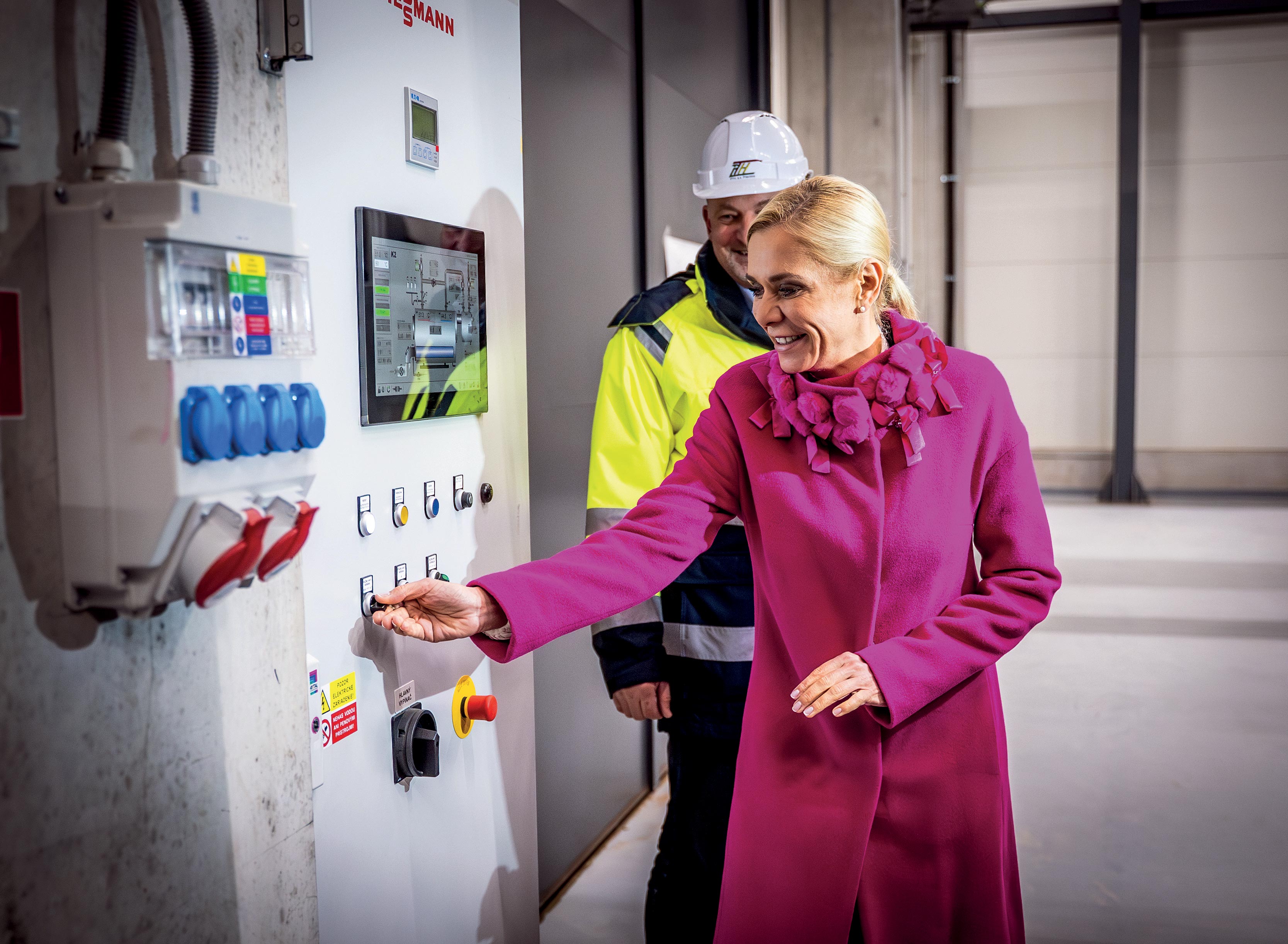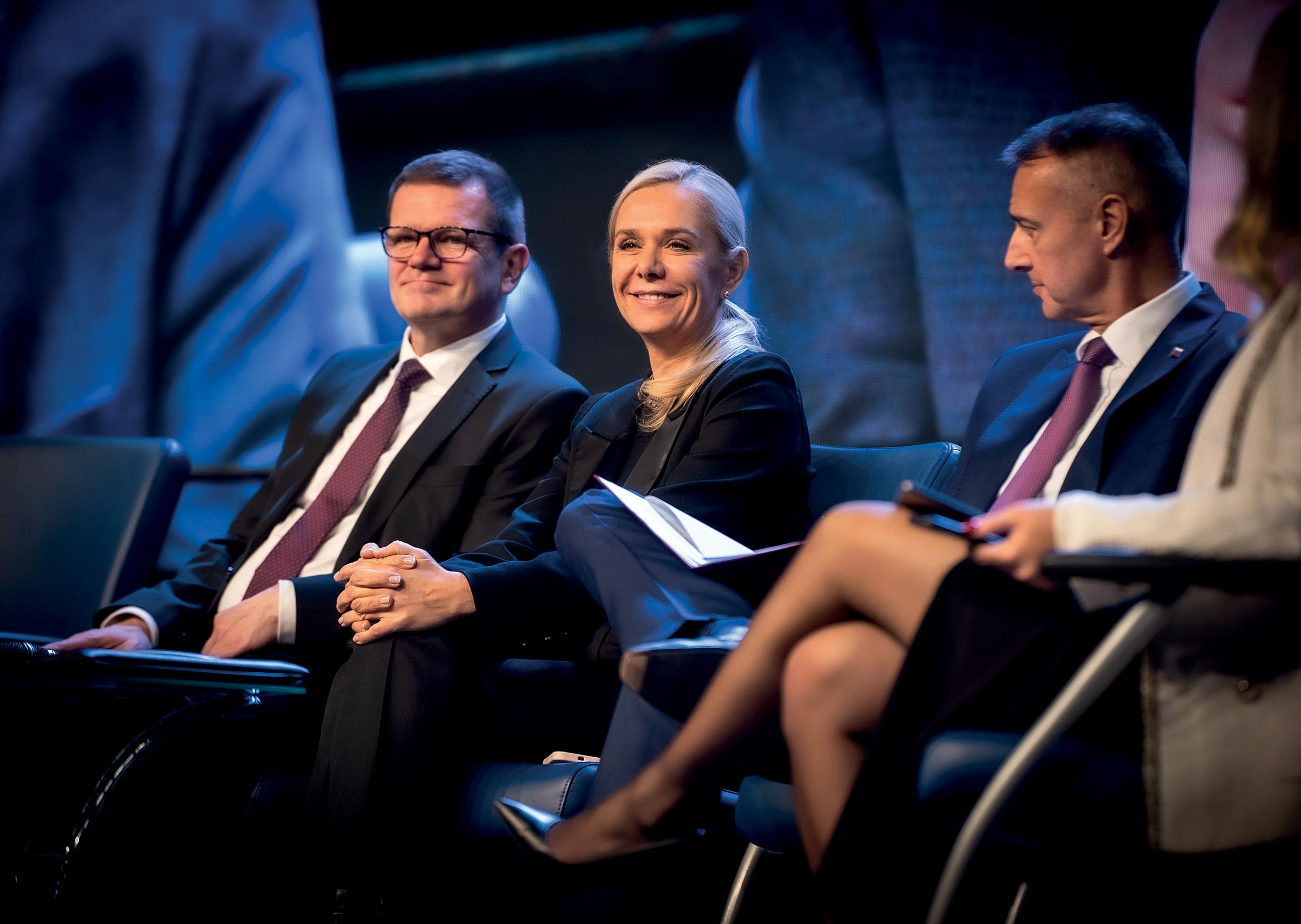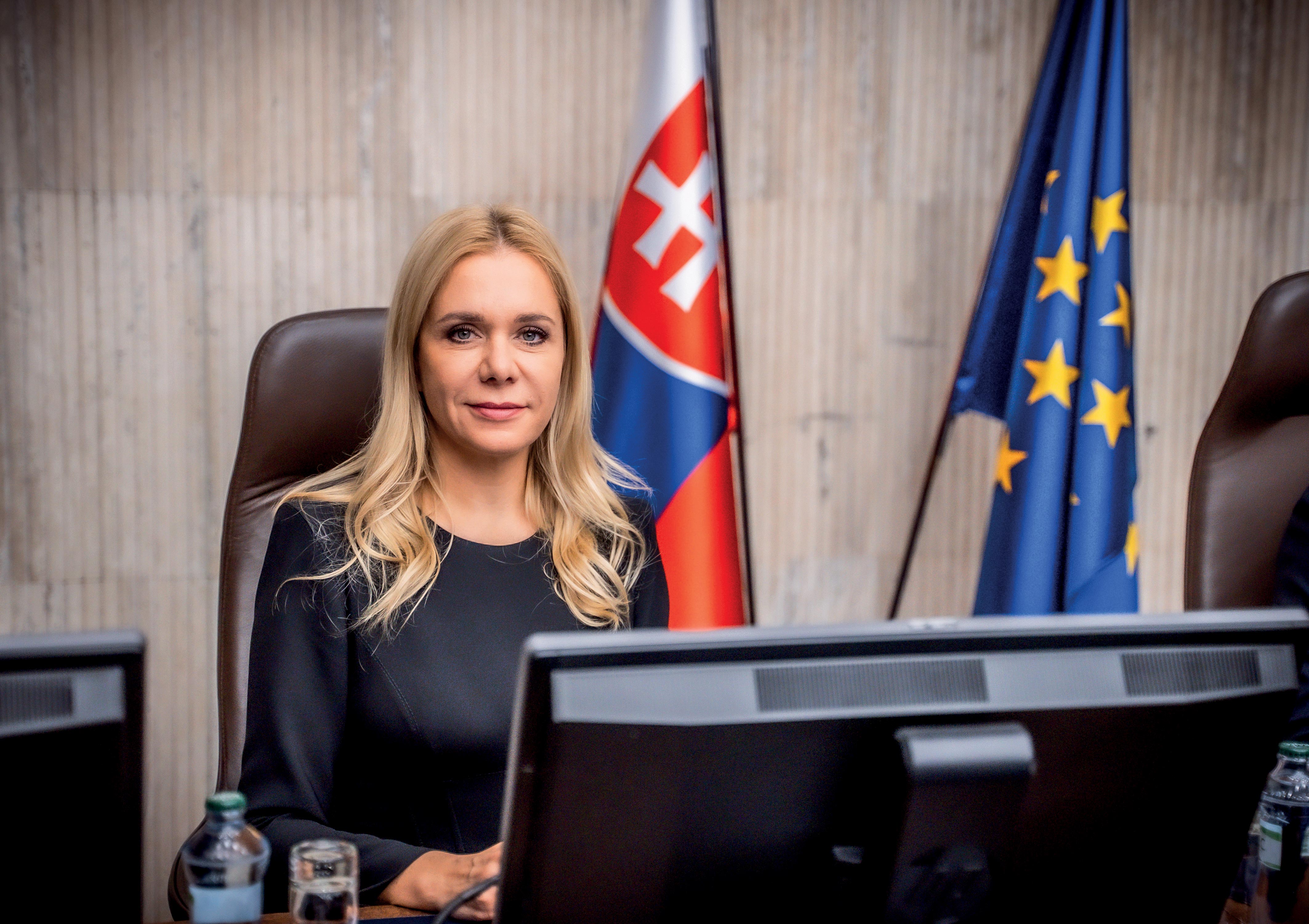Four years ago, Denisa Saková was still the Minister of the Interior. In the current Slovak government, she holds the post of Minister of Economy. She became that right when not only Europe is struggling with noticeable economic issues.
How much did you feel the impact of the inflation crisis? Are the current energy prices an issue for Slovakia?
The energy and inflation crises were a great struggle for Slovakia, of course. The situation was all the more complicated since the coalition in power at the time was in a constant state of internal struggle, and the politicians were incapable of implementing fast and effective solutions. That’s also why, upon taking office, I found missing price decisions that should have been implemented a year ago, and many other similar problems. In spite of all that chaos, at least the state managed to put a reasonable ceiling on energy prices for people and vulnerable customers, and managed to somewhat compensate for extreme energy prices for large businesses. The fight against inflation was much worse, the former government just stood by and watched it happen. The situation was made even more difficult by the fact that the government fell before Christmas 2022, but the elections only took place in September 2023, which severely complicated things for the new government. After taking up the mantle, we made arrangements for the state to guarantee favorable energy prices as well as heat from central resources for the people, and we fixed several other mistakes that the previous governments made in this area, and we’re currently working on systematic solutions.
Is Slovakia still dependent on Russian gas?
After the war in Ukraine broke out and the energy crisis began, Slovakia, much like many other surrounding countries, significantly diversified its portfolio of gas suppliers. However, we still import about half of our required gas from the East. It is, of course, advantageous mostly because of its price.
And is the exception regarding the import of Russian oil for the Slovnaft refinery still necessary?
It is, and not only for Slovakia. For us, it obviously helps keep employment steady until the refinery adjusts their technologies in such a way that they can start processing oil from other sources. But according to my information, without this exception there might be trouble with the supply of certain oil products to some locations in Czechia, as well. That’s why I think this exception is beneficial to Slovakia as well as Czechia.

As the Minister of Economy, she also visits workshops
Slovakia has managed to put into operation new blocks of its nuclear power plant. Will you continue building more reactors in the future?
We definitely want an energetically strong Slovakia. This became glaringly important during the energy crisis, and Slovak households have favorable energy prices in part thanks to finishing the construction of the third block of the Mochovce nuclear power plant. The fourth block is in its last stages of construction right now; it should begin operation at some point in 2025 or 2026, depending on how all the authorization processes go.
Slovakia is in stiff competition with Czechia over becoming the largest manufacturer of cars per capita in the world. How much of an issue is crossing over to electromobility for the Slovak car factories?
Electromobility is a massive trend we must adapt to, if we want to keep the automotive industry as a key sector of our economy. In Slovakia alone, there’s almost 260 thousand people employed in this sector, and it’s responsible for about 50 percent of all Slovak exports. That’s why we put great emphasis on cooperating closely with the automotive industry. I recently organized a large meeting of all car factories in Slovakia, alongside car battery manufacturers, with the Prime Minister, several other Ministers and European Commissioner Maroš Šefčovič all in attendance, where we talked about what must be done in order for our car factories to continue production on the same level for the next five to ten years. The results of these talks will be transmuted into specific legislative measures, which should then be discussed at a special government negotiation meeting dedicated solely to this issue.

With the Deputy Prime Minister Peter Kmec and Prime Minister Richard Raši
The Czech republic is struggling with a lack of workforce. How is Slovakia doing?
Yes, this issue is of course present here as well, that’s why the Minister of Education was a part of the aforementioned meeting as well, because we must do everything in our power to specialize our people to take up positions necessary for the industry.
The EU Recovery plan should have been a help with overcoming the impact of Covid. How successful is Slovakia in drawing from it, and what will you primarily use it for in your industry and economy?
This is one of the great issues we must come to terms with. The former government failed horribly at setting up processes, and multiple goals as established in the recovery plan will be extremely difficult to fulfill. That’s why we’re currently working on identifying critical spots, and we will have to expend great effort to be able to draw as much money as possible.
How significant for Slovakia is the economic partnership with the Czech republic, and which areas do you think could see an even more active cooperation?
Since we were once one country, we not only have a common history and culture, but many - mainly economic - connections remain to this day. That’s why we certainly consider the Czech republic to be an important partner. Our cooperation when it comes to industry and commerce is significant, and during the energy crisis it became apparent that another important thing is our mutual coordination in diversifying our energy sources, and their sustainability. The saying rings true here - there’s strength in unity.
The author is a European editor for Deník

CV BOX
Denisa Saková (born April 17th 1976 in Nitra) is the Minister of Economy and the Deputy Prime Minister of the Slovak government.
In 1999, she graduated from the Faculty of Economics at the University of Economics in Bratislava, her field of study being financial management and finance. She successfully obtained her Doctorate degree in insurance at that same faculty in 2006.
Starting in 2007 she worked at the Ministry of the Interior, first as director of the computer science department, then as leader of the service office. She was a significant participant in preparing Slovakia for entering the Schengen Area.
In 2016, she ran for the parliament for the SMER party, she got elected, but gave up the post, because she became the Secretary of State for the Ministry of the Interior.
In 2018, she was named Minister of the Interior, and held the post until March 2020. In the February elections that same year, she was once again elected a deputy for the SMER party, but switched sides in the summer of 2020 for Peter Pellegrini’s new HLAS-SD party.
In 2023, she successfully ran in the parliamentary elections, and was named Minister of Economy on the 25th of September.
She is divorced, and has a son.